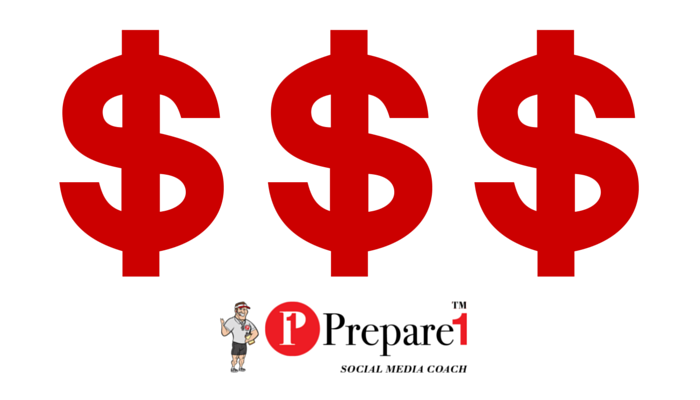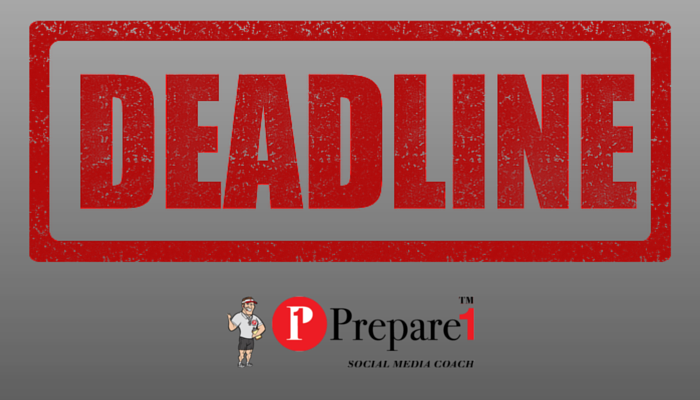Are you ready for the changes that are coming in 2016?
How are you preparing for 2016?
Would you like to be in the top 3% of your peer group?
“Goal setting is the most important aspect of all improvement and personal development plans. Confidence is important, determination is vital, certain personality traits contribute to success, but they all come into focus in goal setting.” —Paul J. Meyer
I’ve tried this before and…well I gave up. Does this sound like someone you know? This time could be different, so give it another try. You might surprise yourself in 2016, someone will be achieving their goals and dreams…WHY NOT YOU!
THE TOP 3 PERCENT
Why did 3% of Harvard MBA’s Make Ten Times as Much as the Other 97% combined?
The Harvard MBA program is extremely competitive, and today admits approximately 15% of applicants. In the 60’s the acceptance rate was about 30%, down to 25% in the 70’s, and has fluctuated between 10-15% ever since. Students who make it past the application process are typically standouts, and already fairly successful by most traditional definitions – they have an undergraduate degree, typically three to five years of work experience and were considered suitable for acceptance into the Harvard Business School.
The average Harvard MBA graduate starts at $115K with a $20K signing bonus. Nonetheless, some graduates of the Harvard MBA program end up being MUCH more successful than others in the long run.
(Source: Harvard’s MBA Statistics Page)
In 1979, interviewers asked new graduates from the Harvard’s MBA Program and found that :
- 84% had no specific goals at all
- 13% had goals but they were not committed to paper
- 3% had clear, written goals and plans to accomplish them
The answer is a simple question: “Have you set clear, written goals for your future and made plans to accomplish them?
In 1989, the interviewers again interviewed the graduates of that class. You can guess the results:
- The 13% of the class who had goals were earning, on average, twice as much as the 84 percent who had no goals at all.
- Even more staggering – the three percent who had clear, written goals were earning, on average, ten times as much as the other 97 percent put together.
(Source: from the book What They Don’t Teach You in the Harvard Business School, by Mark McCormack)
As the Harvard study proved, the ability to set goals and to make plans for their accomplishment is the “Master Skill” of success. With this single skill, you gain an achievement advantage that’s unrivaled. By simply having clear written goals, and focusing on them every day, you’ll run circles around a genius who is unsure and uncertain about what he or she really wants. Perhaps the most important principle in goal setting is what is often called idealization. It is so simple and yet so powerful. All it requires is a pen, a pad of paper, and a few minutes of your time.
IDEALIZATION
In idealization, you stand back and look at every part of your life and then decide upon the ideal outcomes that you desire. You ask yourself, “If everything were perfect in this area of my life…
- What would it look like?
- What would I be doing?
- Who would I become?
- What would I have?”
A person with goals makes progress on even the roughest road and in the face of the most incredible difficulties. A person without goals just goes back and forth even though the road is smooth and the course is clear. A person with goals is like a sailing ship with a compass, a map, a rudder, and a skilled person at the helm, sailing straight and true to a port of his or her own choosing. A person without goals is like a ship without these things, simply rocking back and forth with the tides, making no progress in even the calmest sea.
As Zig Ziglar says…
“You must become a meaningful specific rather than a wandering generality.”
To achieve all that you are capable of achieving, you must develop a clear sense of direction. You must decide exactly what you want in every area of your life.
Perhaps the most important question that you will ever ask and answer, one that returns over and over again, is this:
- “What do I really want to do with my life?”
- What is it that you really want to do with your life?
Most people are unclear and confused about the answer to this question, and that’s why most of them accomplish far less than they are truly capable of.
6 TYPES OF GOALS
You need a variety of goals to be happy and to keep your life in balance. We will deal with goals in six areas:
- Personal goals
- Financial goals
- Business and Career goals
- Family and Relationship goals
- Health and Energy goals
- Spiritual goals
Personal Goals
The first type is your personal goals. These are the things that you really want for yourself. They are perfectly selfish goals. They are the things that make you happy. They are the opportunities to use your unique talents and abilities in a way that gives you deep inner satisfaction.
As the result of our upbringing, combined with myths and misunderstandings, many people feel that they do not deserve good things to happen to them.
While we are growing up, we are often told that we are being selfish if we set our own personal happiness as a key measure of our success. We are often told that our job in life is to make other people happy, and if we get a little bit of personal happiness on the way, we should consider ourselves lucky.
- You cannot give away money that you don’t have.
- You cannot give away love that you don’t have.
- You cannot give away happiness if you don’t have happiness of your own.
In fact, the most wonderful thing you can do for the most important people in your life is to be a genuinely happy person.
What are your personal goals?
Allow yourself to practice visualization. If you had no limits at all on your life and time, what would you want to be, have, or do?
Whatever it is, make up a “dream list” for yourself and your personal life. Write all the things you would have and do if you had no limitations at all. Rather than being unhappy or dissatisfied with your existing situation, create an ideal future vision of what your life would look like if it were perfect in every way.
Financial Goals
Goal setting involves determining where you are now and where it is you want to end up sometime in the future. The planning process requires that you figure out how you are going to get from where you are to where you want to go.
With regard to your financial goals, you begin by determining your exact financial situation today. You can do this by answering these questions:
- Exactly how much are you worth today?
- What are your assets?
- If you had to sell everything that you own today, how much cash could you generate?
- You then determine how much you are earning today on a weekly, monthly, and annual basis.
- How much did you earn last year and the year before?
- How much do you want to be earning next year and the year after?
- How much do you want to be earning in five years?
- 10 years?
When do you want to retire, and how much money will you need to have throughout your retirement?
Between what you have today and how much you will need to retire, exactly how much more will you need?
The great tragedy in the Western world is that the majority of people do not think very much about long-term financial security. Another part of your financial goal setting has to do with insuring yourself against events over which you have little or no control. You need life insurance, health and medical insurance, dental insurance, car and personal liability insurance, home and fire insurance, and whatever other insurance is dictated by your life and your lifestyle. Never make the mistake of gambling with your financial life by attempting to get by uninsured or under insured.
By the way, when you talk to financially successful people, they have answers for every single one of those previous financial questions. They know how much they are worth, how much they earn on a weekly, monthly, and annual basis, how much they want to be worth when they retire, and exactly how much they have to put away to achieve it. They are very thoughtful and prudent regarding every aspect of their financial lives. As a result, they are never broke. They always have money in the bank. They enjoy a far higher standard of living than the average person, even though their incomes are very much the same. Your goal is to join the financial elite by thinking and acting the way they do.
Business & Career Goals
Perhaps the most important decision you ever make, aside from marriage, is your choice of a career. It is absolutely essential that you do something that you enjoy and for which you have a natural talent.
The greatest time waster in life is spending years of your life in a job or a career for which you are unsuited. It is one of the major reasons for unhappiness, frustration, alcoholism, problems in relationships, and ultimately failure in life.
- What sort of a business are you in today?
- What sort of a business would you really like to be in?
- If you had an unlimited amount of money and you could choose any job or career in the world, what would it be?
- What sort of people in what sort of careers do you most admire?
- What sort of business and career activities fascinate you when you see them or hear about them or read about them in newspapers or magazines?
Apply zero-based thinking to your current business or career. If you were not currently doing this, knowing what you now know, would you start into it again today? If the answer is no, then your next question is, “How do I get out of this field – and fast?” The way you can tell if you are in the right job is that you really enjoy it. You want to be good at it. You are eager to learn more about it, and you continually take courses to get better in your field. You very much admire the most successful people in your chosen field. When you are not at work, you think about your work, and you can hardly wait to get back to it. If none of these conditions exist in your work, you might give your future career some serious thought.
Family & Relationship Goals
For many people, these are the most important of all, especially if you have growing children.
- What are your family goals?
- If you could be, have, or do anything with or for your family, what would it be?
There are two types of goals, tangible and intangible. Tangible goals are things that you buy or build.
For your family, these can include a home, a boat, electronics, a car, a vacation trip, clothes, toys, or anything else that can be purchased. Everyone has a list of tangible goals that they want to acquire for their family.
Intangible goals, on the other hand, are qualitative. These are things that require time, caring, consideration, warmth, and emotion. They cannot be bought with money. They are indispensable and irreplaceable in a happy family life. And these are the benefits or things that your family wants more than anything else.
All of us from time to time get caught up in our work, spending long hours, leaving home early, getting home late, and often working weekends. We get caught up in social media and what’s happening at the moment. We continue to cram more and more into our day.
But if you ask, in almost every case, their families would prefer that they worked less and spent more time at home. Achieving a healthy balance between tangible and intangible family goals is essential.
Health and Energy Goals
Most people don’t say they wish they’d spent more time in the office when they are on their death bed.
Most people set a goal for how long they intend to live.
If they do think of this, they decide that they want to live to be 100 years old or older. But for most people, these are pipe dreams. They are completely detached from reality. The average life span in the U.S. today is about 76 years for men and nearly 81 for women.
This means that 50 percent of people will die below those ages. And by looking at the health habits of many people, you can quickly determine who is going to pull down the overall averages.
With regard to your health goals, you probably want to be thin, fit, trim, full of energy, with no pain, illness, or discomfort. You want to live a long, healthy, happy life with all the energy and agility that you need to do all the things you want to do and go to all the places you want to go. These are probably your overall health goals.
- How can you tell if you are acting intelligently?
- By simply examining your behavior relative to your health goals.
- By eating carefully and well, by exercising regularly, and by taking good care of yourself physically, in every way, you are performing at genius levels in terms of your health.
On the other hand, anything that you do that may interfere with your living to be 80 or 90 or 100 years old is, by your own definition, by your own goals, a stupid thing to do.
Decide today that you are going to live a long, happy, and healthy life. Cut down or eliminate all activities that interfere with this overall goal of superb physical health. At the same time, begin engaging in the kind of physical activities that will assure that you live as long and as well as you possibly can.
Spiritual Goals
Do you have a spiritual component to your life?
Do you attend a church or synagogue regularly?
Most have there own definition of religion and what it means to us personally. Zig Ziglar used to ask his audience if they believed in God?
Do your volunteer your time? Give a tithe to the church? Go to be refreshed and fellowship with friends?
Whatever it is, it’s personal to you. Faith without works is dead.
State the Goal
Has this ever happened to you? Over the course of a week, several different people have asked you different variations on the question:
- “What is your main goal?”
- Maybe they’ve said, “What is your ambition”
- “What do you want to do with your life”
- “How does the future look for you?”
These similar questions were asked by different people of different ages or social circles and you made efforts to try to phrase your goal in the best possible way. Perhaps you use the terms “sorta” or “kinda” as in “I sorta want to go back to school, but I’m not sure.” Your explanation takes as long as a minute or two because you aren’t exactly sure about all of the specifics. When you finally get it out, the other person acknowledges what you’ve said and then promptly moves on.
It took you a long time to state your goal, because it isn’t clear to you. The person moved right on because they can tell that your lack of clarity will make it tough for you to achieve what it is you “sorta” “kinda” want.
Clearly state your goal in a positive and succinct way. Even if you aren’t 100% sure you can do it, do not insert any maybes or probablys. If you think losing 30 pounds would be good for you and that you might want to make it a goal, say:
I want to lose 30 pounds.
Author Brian Tracy also suggests you put it into present terms as if you’ve already completed it. Here’s an example:
I have lost 30 pounds by July 1st, 2016.
Set a Deadline
A lack of a deadline can make you put off really trying to complete the goal. I understand that there can be a lot of fear associated with attempting to try and failing, but as extreme failure and success Thomas Edison could tell you, there’s much to be said about failure leading to ultimate success.
Add a deadline to your goal to enhance the clarity even further. This can be a particular date, a month, a year, or even a lifetime goal. It will be easier though to start with a few goals you expect to attempt in the near future. For example:
I want to increase my monthly income 20% by June 2016.
Or to be more specific:
I want to increase my monthly income from $5,000 a month to $6,000 a month by June 2016.
I suggest adding a deadline to all of your goals. Even if you aren’t able to achieve it by the date, you can change the date later, but there’s something about listing the hopeful completion time that will kick your subconscious into high gear.
Identify the Obstacles
Here’s the good news. This is a step that most of the general public does fantastically. Here’s the bad news. Identifying the obstacles of their goal setting is what usually stops them from trying to achieve their goals in the first place.
By pointing out the things that are in the way of a goal, we can figure out ways to overcome them. This is not the path of least resistance people, this is where the work comes into play. We have goals because they are worthwhile, not because they’re easy. Jim Rohn has a great quote about football for this situation.
Say you’re in an empty football stadium. You have a ball and you tuck it under your arm and cross the goal line. Should you feel good about yourself? Did you just score a touchdown? No, of course not. There was no resistance, no other team, no fans for either side cheering or booing you. All you did was walk with a ball on a field. Now, add in the game and the packed stadium of fans. If you cross the goal line with the ball, you have scored a touchdown and you will be cheered and congratulated by your team and fans. This is because you’ve actually accomplished something. You achieved a goal despite the obstacles against you. You did something that was worth it.
Don’t just go for the easy stuff. Push forward and take on goals with a few obstacles. Let’s go back to the weight goal. What could be a few obstacles?
- I’m out of shape and I can’t exercise for more than a few minutes.
- I work 60 hours a week and I’m too tired to do much of anything by the time I get home.
- My friends and I go out for a big steak dinner and drinking every Friday evening which makes me hung over pretty much all Saturday.
You don’t have to figure out how to beat these yet (that comes later) but even just listing some of these on a piece of paper makes them tangible, real things. Thoughts in your head are a lot tougher to beat than words on a sheet of paper. Listing your obstacles is a great first step to overcoming them.
Identify the People, Groups, and Organizations that Can Assist
I know a lot of people who are afraid to ask for help in many situations. When you are trying to achieve your goals, this is a bad time to play either shy or independent person. Some of the greatest minds in human history had wonderful mentors or assistants to help them get to where they are.
A good number of them also belonged to organizations that honed their skills and aided in their achievement of their important life goals. For a weight goal there are programs like Weight Watchers PX90, Jenny Craig or a series of books on the subject. For improving your income, there are local finance groups or seminars led by speakers who have achieved a great deal of success.
A simple Google search will yield wonders. The important thing here is to search. Whenever I am embarking on a project that requires information beyond my own, I ask somebody who is an expert on the subject. Finding these people saves me tens of hours of my time trying to figure something out myself.
Make a list of the people, groups and organizations that can help you in your quest. If you can’t identify more than just a couple, do a little bit of research. Your goal is worth the amount of time you put into it.
List the Benefits of Achieving the Goal
This is the fun part where we can let the imagination run wild. List as many benefits as you can think of to setting and making this goal happen. If you want to lose 30 pounds, think about how much more you will be able to do without that extra weight around.
Maybe you will be able to bike more or meet new people in more athletic settings. If it’s the money goal, perhaps you will be able to afford that new restaurant in town, or take your significant other on a nice trip. Whatever your goal is, go to town on writing down all the possible spoils of making this goal a reality.
List the Skills You Need to Acquire to Attain the Goal
This is another tough part but it is also worth it. Our ability to take on these goals is directly related to what we can do to make it easier and more achievable on our parts.
Before I could learn to bench press 275 lbs., I first had to learn all of the supplementary triceps and pectoral exercises to fully enhance my bench press skills.
Perhaps you need to learn web design, a new social media marketing skill or a sales technique to up your monthly income.
There are so many books available on so many subjects and there is a growing “how to” directory of videos and articles on the Internet. Many different skills can be learned. If you need a skill in order to improve your chances of accomplishing a goal, you have little to no excuse. Take the time and learn it.
Develop a Plan
You know your goals and when you want to achieve them by. You know what’s in your way and who can help. You know how much these goals will benefit you and you know what skills you must acquire to help you along the way.
Now comes the little matter of “how.”
I suggest a detailed plan of the next week and how you are going to integrate these six other steps into your daily routine.
- When will you put in the thirty minutes in the library researching the right book for a skill?
- When can you set up a meeting with that potential mentor about his or her expertise?
- Is there a good twenty-minute period of downtime for you to visualize some of the benefits you may receive?
Schedule the time for this goal achievement to happen. If you never schedule it, there is a good chance you will never move forward. If you slip up a few times and you don’t get some actions completed when you planned them, just change the deadline and try again the following week. The best plans are often adjusted many, many times before the end result is reached. You must create a plan to ensure that you will at least attempt to realize these goals.
This is your opportunity to achieve some of the things in your life that you have put off to the side. Write down your responses to these seven steps right now. You can use it with any or all of your goals for all areas of your life. Put your answers in a good place for you to review often (a refrigerator or a desk). Pick them up when you have a chance and start working. At that point, the achievement of your goals is simply a matter of time.
Conclusion
In goal setting, your main job is to be absolutely clear about what it is you want, to make a plan to achieve that goal, and then to think about it and work on it every single day.
In no time at all, you become a more definite, positive, focused, and determined person. You become optimistic and creative. You begin to activate all the powers of your mind and organize all the mental laws to work on your behalf.
You step on the accelerator of your own potential, and you begin achieving at a higher level than you ever have before. Remember, there are no limits except the limits you place on your own imagination.
Sources: Zig Ziglar and Nightingale Conant
About Blair

Blair Evan Ball is a Social Media Coach and founder of Prepare1, a company that works with businesses, individuals and non-profits. He is a former executive with a Fortune 50 company, and his national division did $1Billion+ in sales annually.
Blair has written three e-books: Facebook for Business Made Easy, Facebook Pages for Business Made Easy, and WordPress Blog Setup Made Easy.
Blair also educates, trains entrepreneurs and business professionals how to amplify their brand, increase revenues, and raise more funds.
![[Study] How Will Businesses Change Their Social Media Activities 5 Golden Rules for Sharing on Social Media](https://www.prepare1.com/wp-content/uploads/2014/03/COACH-logohat-162x300.jpg) The Race is ON! | PREPARE | Get into the Game and WIN!
The Race is ON! | PREPARE | Get into the Game and WIN!

















Comments on this entry are closed.
{ 1 trackback }